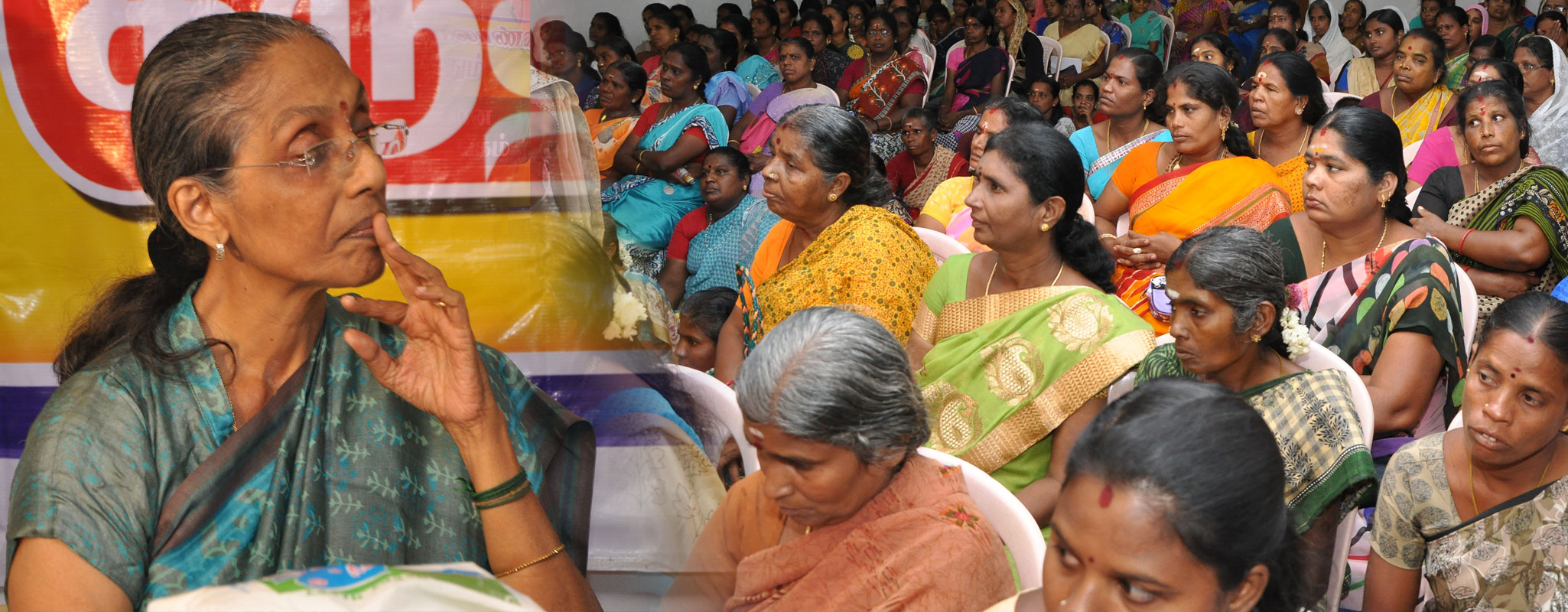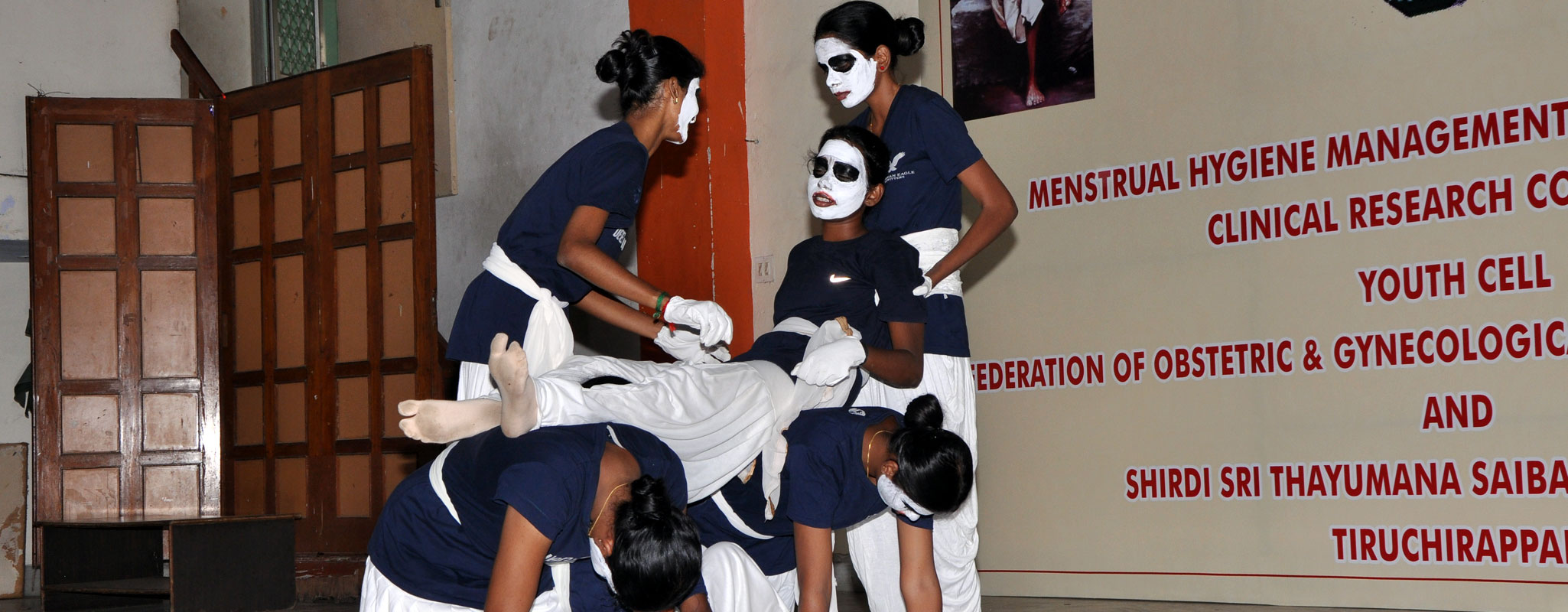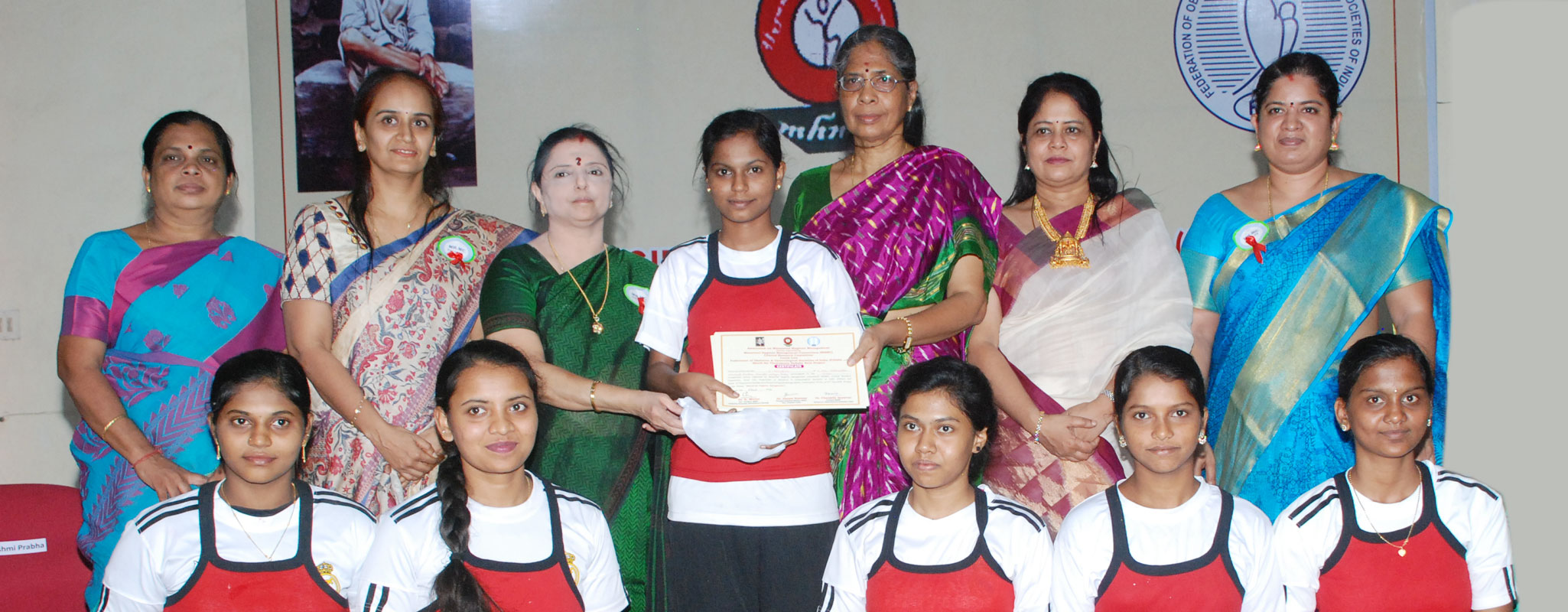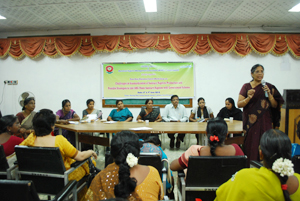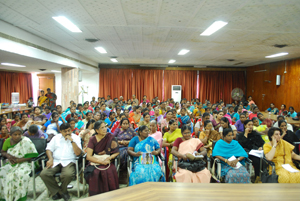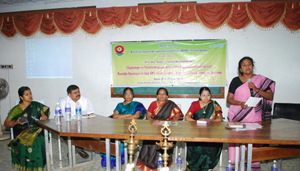Workshops
Inauguration of the MHMC and Two Day State Level Consultation on Integrating and Mainstreaming MHM to Total Sanitation
On July 14-15, 2010, the MHMC held its first State-Level Workshop with policymakers and government officials from across the state in attendance. The main goal was to bring about convergence among the various actors involved in the field of MHM and to collectively propose recommendations in response to the recently announced Government of India scheme to roll out free distribution of sanitary napkins to adolescent girls in 10 TN districts in the first phase. Technical sessions on various aspects viz Menstrual Hygiene as a Key Component of Adolescent and Reproductive Health, Sustainable Business Models, Girl Friendly Institutions, Menstrual Hygiene Management and various areas of constraint, Issues of Sanitation in Menstrual Hygiene Management, Partnering with the corporate sector for MHM held and evolved action plan and recommendations through Group Discussions on Government Scheme for Menstrual Hygiene by Ministry of Health and Family Welfare and on possible coordination with line departments.
WOMEN ON WINGS, NETHERLANDS-10.10.2010 to 12.10.2010
Ms. Ton and Ms. Ina of Women of Wings of Netherlands visited Trichy to evolve models of entrepreneurship based on experience generated from on-going income generating projects that focus on producing female hygiene products in India, particularly sanitary napkin at affordable costs for poor rural women. The team was also studying preparation of training modules that are relevant for appropriate skill building such as entrepreneurship and management, leadership and motivation, production standards and quality, packaging, storage and distribution, marketing and sales, accounting and financial reporting, handling of consumer needs and feedback, etc.

The team visited the Sanitary Napkin Production unit of Woman NGO and also the networking activity of different Self-help groups at Keeranur. There was discussion on “Sustainable strategies to address the menstrual hygiene needs of adolescent girls and women of Tamilnadu” by various stakeholders involved in Sanitary napkin production and distribution.
"LEARNING EXCHANGE VISIT TO TAMIL NADU FOR GOVT. OF WEST BENGAL TEAM"
A UNICEF sponsored five - member team from West Bengal made a two day Learning Exchange visit to Trichy on 10th and 11th of January 2011to gather first hand progress made in Tamil Nadu on MHM. They visited the Sanitary Napkin production unit of Woman NGO at Keeranur. The team visited Srirangam Girls’ High school to learn the awareness program strategy of MHMC. The interaction session with the E.C. members of MHMC took place in the Dept. of Women’s Studies of the Bharathidasan University. There was exchange of information about the MHM activities carried in the two states namely Tamilnadu and West Bengal. The team appreciated the initiatives and strategies carried out by MHMC. They said that the visit was very useful and they had gained lot of information on MHM. They also promised to share the knowledge they gained from the visit and help to improve the MHM status in their state.

TWO DAY WORKSHOP ON "DISPOSAL MECHANISMS OF USED SANITARY NAPKINS AND EXPLORING THE PILOT ON REUSABLE NAPKINS"
5th & 6th March, 2011
Sanitary napkin disposal is an integral part of Menstrual Hygiene Management. Proper disposal of napkins is as important as its use. Awareness programs on hygiene and Sanitation should be accompanied by safe disposal of napkins.
The safe means of disposal stressed were use of incinerators – manual and electronic, burial and burning.
A workshop was held to Promote sustainable menstrual hygiene practices among adolescent girls in Tamil Nadu by analyzing the pros and cons of the reusable and disposable sanitary napkins to sustain and protect the environment and natural resources and provide a healthy life to future generation. The MHMC Brochure was officially released by Dr. K. Meena, Vice-Chancellor, Bharathidasan University. MHM interventions carried out by the government departments and UNICEF especially in schools in different districts of Tamil Nadu was discussed. Various methods of safe disposal of sanitary napkins in rural and urban areas and future of Reusable napkins were the main areas of discussion. The participants shared their experiences and also gave their inputs for improving the MHM practices. A team from Auroville Village Action Group, explained about the “Eco Femme” reusable cloth napkin. The product is Reusable cloth napkin. It also helps to generate livelihood among rural women across the country. A national Pilot project will also be launched to study the marketability of the Eco-Femme.
Ms. Kathy, Executive, AVAG explained about the “Eco Femme” project.

UNICEF SPONSORED ONE DAY STATE CONSULTATION ON “AN ASSESSMENT AND EVALUATION OF THE MHM INITIATIVES IN TAMILNADU AND PONDICHERRY – CHALLENGES, OBSTACLES AND STRATEGIES TO MAINSTREAM MHM TO TOTAL SANITATION”
8th May, 2011
The State level consultation on assessment and evaluation of the MHM initiatives in Tamilnadu and Pondicherry – challenges, obstacles and strategies to mainstream MHM to total sanitation was conducted. It was attended by participants from 10 districts of Tamilnadu. Form each of the districts coordinators were chosen to help the growth of MHMC.

The following resolutions were also passed
- The meeting appealed to the Government of India to implement the scheme it had announced in February 2010 to provide low cost sanitary pads to adolescent girls and to place the orders on SHGs for the manufacture of sanitary pads.
- The meeting also stressed that the government should implement the scheme in all the districts of the state and not just in the announced 10 districts.
- The meeting called up on the State government to expedite setting up of public toilets for women at work spots and educational institutions that are 'girl-friendly'
- To spread the wings of MHMC in every district.
- To include menstrual hygiene management in schools as a compulsory academic subject.
- To facilitate co-ordination among Injtegrated Child Development Scheme, Social Welfare department, Department of General Health and department of Education to ensure menstrual hygiene and management and to give due recognition to NGOs and include them in the endeavour to retain the lead position.
Challenges in Stadardization of Sanitary Napkins Production and Possible Strategies to link SHG Made Sanitary Napkins with Government Scheme.



